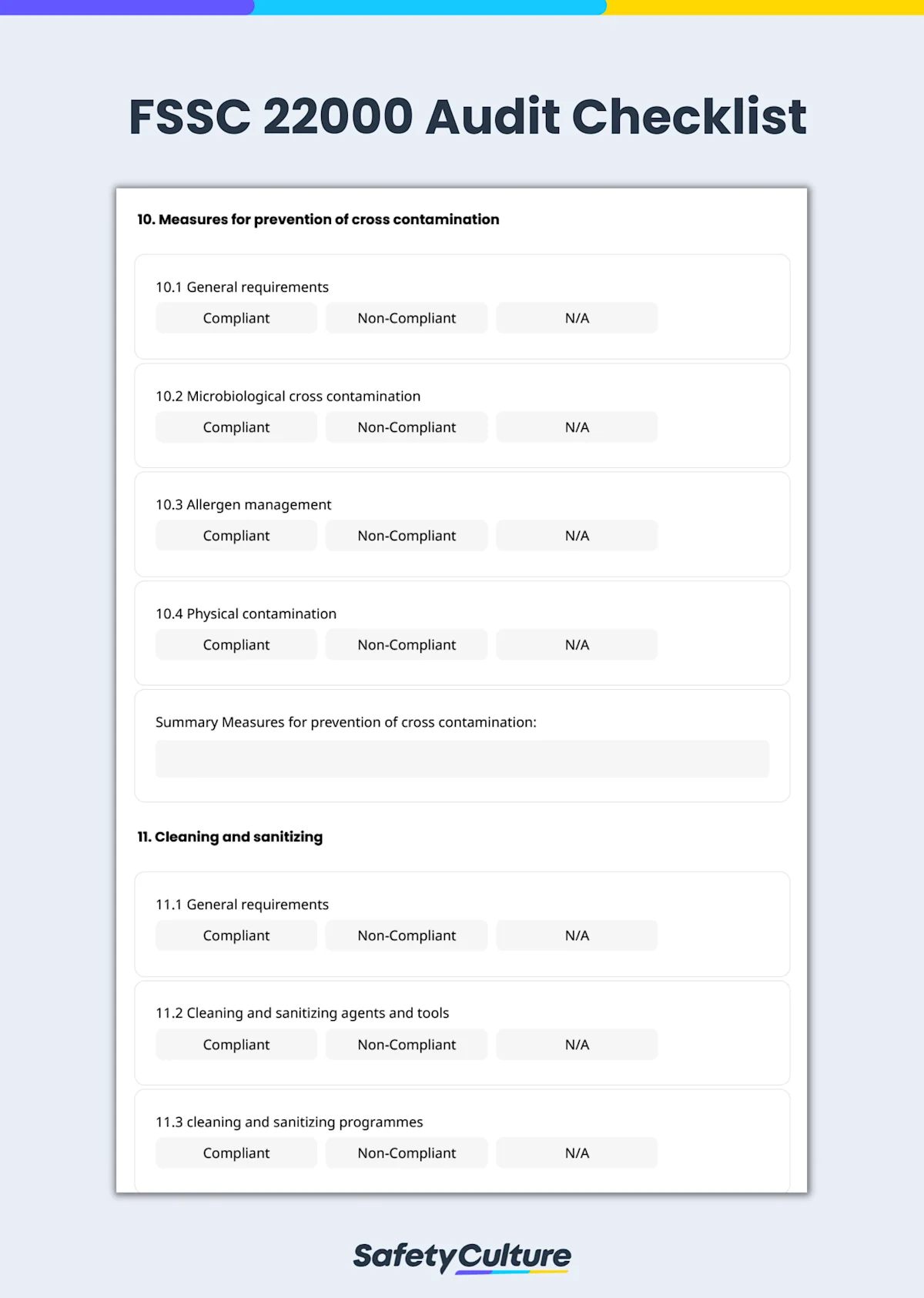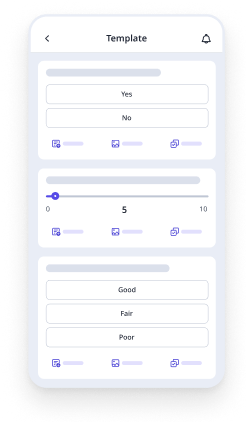Published 26 Sept 2025
Article by
4 min read
What is an FSSC 22000 Audit?
An FSSC 22000 Audit is performed by an ISO 22000 certified auditor in order to verify if a company involved in food processing, food manufacturing, or food packaging meets FSSC 22000 standards for certification. Other prerequisites for FSSC 22000 certification involve meeting ISO 22000 requirements for a Food Safety Management System (FSMS), and ISO/TS 2202-1 for food processors or ISO/TS 2202-4 for food packaging manufacturers. An FSSC 22000 audit checklist is a tool used by organizations to internally evaluate their current performance and determine potential gaps in compliance. Using FSSC 22000 audit checklists help companies take action on areas of improvement to make it easier to prepare for certification.
What is the Difference Between ISO 22000 and FSSC 22000?
The difference between the two food safety standards is that while FSSC 22000 is based on the ISO 22000 Food Safety Management Standard, it expands upon the ISO standard with additional requirements. The other major difference is that FSSC 22000 is a standard recognized by the GFSI and designed for food manufacturers who supply their products or ingredients to major food retailers and suppliers.
How do I Prepare for FSSC 22000 Audit?
To prepare for an FSSC 22000 audit, you can follow these 4 steps:
Form a Team
Form a team that will help your organization prepare for the FSSC audit and ideally be composed of persons who are familiar with your processes and procedures.
Become Familiar with FSSC 22000
The team should review and familiarize themselves with the requirements of the FSSC standard in order to be able to effectively identify gaps between the current processes and the standard.
Conduct Internal Audits
Use an available FSSC 22000 checklist to conduct internal audits and discover gaps that should be addressed in order to align with the FSSC 22000 standard.
Get in Touch with Third-party Auditors
Coordinate with recognized auditors and get your company audited for FSSC 22000.
What are the FSSC 22000 requirements?
FSSC 22000 certification requires the following core requirements to be met:
ISO 22000 : food safety management system requirements. FSSC 22000 is based on ISO 22000 but is not sufficient to be recognized by the GFSI on its own.
Pre-requisite Programmes (PRP) : based on ISO/TS 22002-1 which include requirements for construction and layout of the building, maintenance services, product information, personnel hygiene, food fraud and defense systems, etc.
Additional requirements : inventory of and compliance with applicable regulations, documentation and review of management services (e.g. utilities, transport, maintenance), and supervision of food safety personnel.
What to Include in a FSSC 22000 audit Checklist?
An effective FSSC 22000 audit checklist should comprehensively cover key prerequisite program (PRP) areas related to food safety management. Based on the FSSC 22000 scheme and ISO/TS 22002-1 requirements, here are essential items to include in your checklist:
Construction and Layout of Buildings : Buildings must be designed and maintained using suitable materials to prevent contamination and allow effective cleaning.
Layout of Premises Workspace : The internal layout should enable smooth workflow and zoning to prevent cross-contamination between raw and finished products.
Utilities – Air, Water, Energy : Utilities such as water, air, and energy must be safe, adequately maintained, and monitored to avoid contamination risks.
Waste Disposal : Waste must be properly segregated, contained, and removed promptly to prevent contamination and pest attraction.
Equipment Suitability, Cleaning, and Maintenance : Equipment should be hygienically designed, regularly cleaned, and maintained to ensure safe food processing.
Prevention Measures for Cross Contamination : Effective barriers, zoning, and procedures must be in place to prevent cross-contamination throughout the facility.
Personnel Hygiene : Employees must follow strict hygiene practices, including proper handwashing, protective clothing, and illness reporting.


